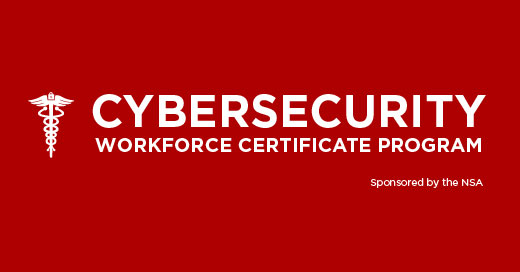UA Little Rock will offer cybersecurity certificate through higher education partnership

The University of Arkansas at Little Rock is partnering with a higher education consortium led by the University of Louisville to offer an online Cybersecurity Workforce Certificate program funded by the National Security Agency (NSA).
UA Little Rock was chosen to participate in this project because of the college’s earned designation as an NSA Center for Academic Excellence in Cyber Defense.
“We are excited to work on this workforce program,” said Dr. Mariofanna Milanova, the project lead for UA Little Rock and a professor of computer science. “It will better position our state and country to defend against cyber adversaries.”
As a part of the NSA grant, first responders, including police officers, EMTs, firefighters, and healthcare workers, and military veterans can participate in the program at no cost. In addition to the certificate, participants will be able to earn industry-recognized badges from tech leaders such as Google, Microsoft, and IBM.
The certificate program focuses on enhancing student knowledge in the realm of cybersecurity foundational courses, while using healthcare data examples and use cases. Participants may complete a total of 24 modules during the six-month program.
The modules will cover topics like artificial intelligence, cyber threat hunting, network security, data mining, blockchain, digital forensics, database security, cloud security, Internet of Things, post quantum cryptography, risk analysis, and robotics process automation analysis.
”There are three levels in this certification,” said Philip Huff, assistant professor of cybersecurity. “The explorer level provides foundational training in cybersecurity for IT professionals seeking to improve their understanding of cybersecurity. The practitioner level includes training for working in cybersecurity operations and includes topics in network security, cyber threat hunting, and forensics. Then the professional level includes several advanced topics in artificial intelligence, blockchain, and cloud security.”
The program is offered asynchronously online and includes virtual labs developed through the UA Little Rock Cyber Arena. Although fully online, instructors are available through virtual office hours, and each student will be assigned a success coach.
UA Little Rock is working with the Forge Institute, a nonprofit organization that specializes in developing private-public partnerships that advance cyber operational objectives, to help test the cybersecurity curriculum through its existing cybersecurity boot camp, where participants are trained to become cybersecurity analysts.
Researchers at the UA Little Rock Cyber Arena, an education and simulation model laboratory for cybersecurity learning, are developing next-generation tools for delivering and assessing the cybersecurity curriculum for the certificate program. This will provide an exciting research opportunity for students who are entering the new bachelor’s degree in cybersecurity that begins this fall.
Each cohort has 40 spots available. The next cohort start dates are Nov. 22, 2021; Jan. 24, 2022; and March 14, 2022. Those interested may visit this website to apply for the Cybersecurity Workforce Certificate program.
For more information, contact Sandra Leiterman at saleiterman@ualr.edu or visit the NSA Cybersecurity Workforce Certificate program website.
